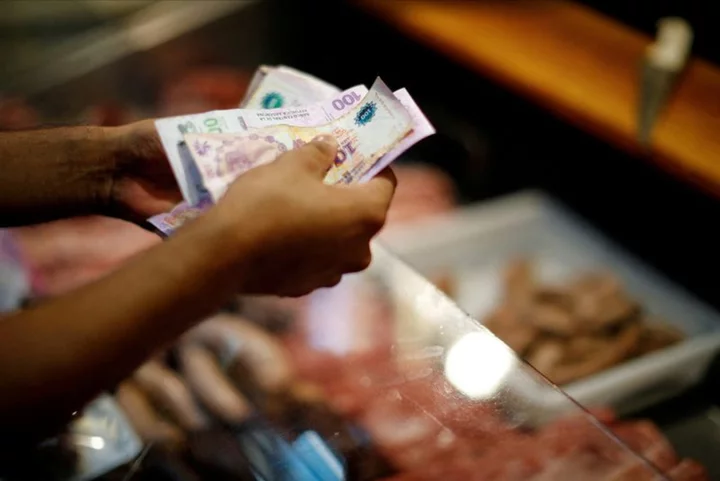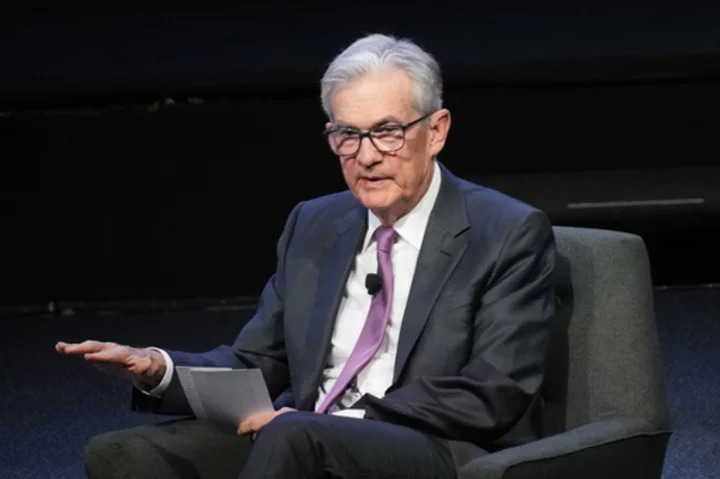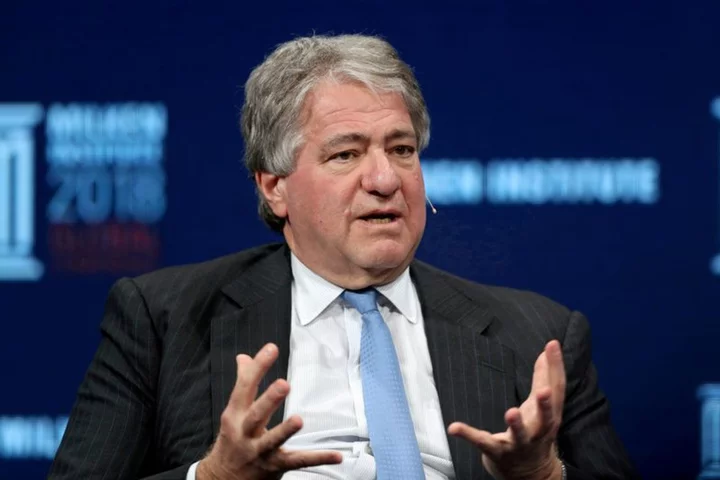By Jorgelina do Rosario and Karin Strohecker
LONDON A helping hand from China saw Argentina avert a default with the International Monetary Fund for the second time in 30 days, as the cash-strapped country tapped almost $3 billion of a Beijing currency swap line to pay the multilateral lender.
Accessing yuan to make the payment not only offered a lifeline to Latin America's third-largest economy which is battling an acute scarcity of dollars, it also allowed the Washington-based lender to keep a $44 billion program alive with its biggest single country debtor, analysts say.
However, questions are mounting over the terms and conditions of the agreement between the two countries' central banks.
"China is not trying to supplant the IMF," said Matthew Mingey, a senior analyst with Rhodium Group. "When China has allowed these swap lines to be tapped, in many cases it's to unlock an IMF bailout or ensure an IMF programme stays on track."
While China is a member of the IMF, it is also the largest bilateral lender to the developing world, with Argentina one of the biggest recipients of Chinese investment in Latin America - including funding for railway and power projects as well as mining. In turn, China is a major customer for Argentina's soy, corn and poultry exports.
Under the terms of an IMF loan agreed in 2022, financing is released in tranches based on regular reviews confirming Buenos Aires has taken necessary steps to shore up the economy, but disagreements over the policies delayed recent talks.
Argentina reached a preliminary deal - or Staff Level Agreement - with the IMF on Friday, but will only get access to the associated $7.5 billion once its executive board gives a final sign off in the second half of August.
In the meantime, the country has to make repayments from a failed 2018 programme.
Out of time and money, Argentina tapped $1.1 billion equivalent of yuan in June and $1.7 billion in July to cover part of two repayments of more than $5 billion to the Fund.
"It is simply acting as a short-term bridge loan," Mark Sobel, a former senior U.S. Treasury, told Reuters. "China has every incentive to tightly manage Argentine drawings under the swap lines as the risks are very high."
A country automatically falls into arrears with the IMF if it misses a repayment to the fund, which means also losing access to financing from other multilateral lenders like the World Bank. Such an outcome, and the likely resulting market jitters, would have dramatically increased pressure on Argentina.
UNKNOWN PRICE TAG
Neither China nor Argentina have released details of the loan bridge, and little is known about the $19 billion currency life line signed more than a decade ago.
"The Chinese swaps are highly opaque," said Sobel, who was the U.S. representative at the IMF from 2015 through 2018.
"The terms aren't known - how easy is it to draw? What are the conditions? What are the interest rates? How long is the tenor?" are just some of the unanswered questions, he added.
China's central bank and Argentina's central bank and economy ministry did not reply to requests for comment.
The swap line that the People's Bank of China (PBOC) signed in 2009 with Buenos Aires was the first agreed with a Latin American country. It has since been renewed and expanded with both leftist and market-friendly governments in Argentina.
Following a May China trip by Economy Minister Sergio Massa, the countries agreed to double the freely accessible part of the swap deal from 35 billion yuan ($4.94 billion) to 70 billion yuan, allowing Argentina to pay for imports and now, repay the IMF debt from the 2018 loan.
"The line works like any other short-term BoP (balance of payment) loan, although access to the resources is restricted and expensive," said Martin Castellano, Head of LatAm research for the Institute of International Finance (IIF).
The geopolitical backdrop is delicate.
The United States is the IMF's largest contributor but Washington has been increasingly at odds with China on how to solve debt restructurings with countries like Zambia and Sri Lanka. Relations are also at a crucial juncture over hot-button issues such as Taiwan and Russia's invasion of Ukraine.
"From the point of view of geopolitics, this brings Argentina closer to the Chinese sphere," said Alejandro Werner, founding director of the Georgetown Americas Institute.
"It reflects how much more agile Chinese external financial diplomacy can be, and it's an additional virtue that countries see in maintaining a constructive relationship with China," added Werner, who was the head of the IMF's Western Hemisphere Department when Argentina's 2018 loan was approved.
Argentina is set to elect a new president in October amid triple-digit inflation and mounting capital controls that have crippled the economy. Uncertainty is high over whether Argentina will keep up payments to the IMF thereafter, or if it will need to - or can - tap the swap once again.
"This is not free money, and even where the PBOC has a large facility agreement in place, these swap lines often come with drawdown conditions," Mingey said.
(Reporting by Jorgelina do Rosario and Karin Strohecker, additional reporting by Jorge Otaola in Buenos Aires and Joe Cash in Beijing; Editing by Kirsten Donovan)









